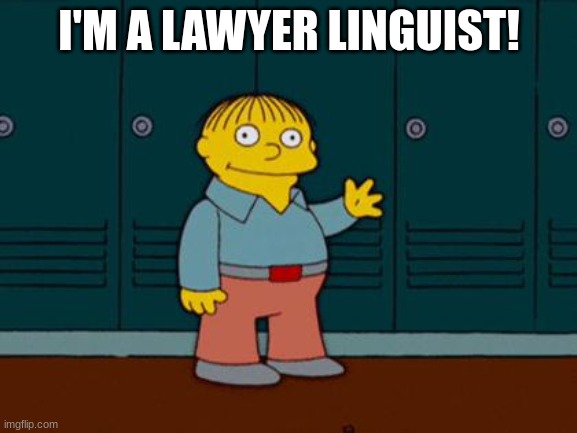Posted by Stephen Horowitz, Lecturer of Legal English
Fun with punctuation. (via social media)


Post by Profs. Stephen Horowitz and John Dundon, Georgetown Legal English Lecturers
Despite teaching the same Two-Year LLM program Legal English course the past three years (same content, different sections), my esteemed colleague Prof. John Dundon and I just realized we differ on whether, when focusing on the line of criminal procedure cases and Miranda rights during our Legal English II course, the correct version of the phrase should generally be plural (i.e., Miranda warnings), or whether it is also acceptable for it to be singular (i.e., Miranda warning.)
I won’t say who was advocating for which side, but the argument for exclusively plural was that the Miranda v. Arizona opinion includes multiple items for which a warning must be provided, including the right to remain silent and the right to an attorney. The argument against was that the multiple items can be viewed collectively as one warning.
The only civilized way to settle this debate between two lawyer-linguists, of course, was to follow the descriptivist path of looking to the corpora.
Using the entire internet as a corpus (i.e., a Google search of the phrase “a Miranda warning”), it seems to support the use of the singular, as the phrase appears in the Wikipedia entry for Miranda Rights as well as in news articles (e.g., NPR; NYTimes), on legal info sites (e.g., Cornell Law School Legal Information Institute; usconstitution.net; NOLO.com), and on law firm sites (e.g., D’Emilia Law – “What is a Miranda Warning.”)
So do those arguing for the exclusive preference for the plural have the right to remain silent? Not without first consulting an attorney. In fact, nine of them.
If the corpus is instead the line of Miranda cases from our course, all of which were decided by the U.S. Supreme Court–the esteemed body that originated Miranda rights and its associated language–then suddenly we see an extremely strong predilection for the view that Miranda is actually comprised of several warnings, which suggests that the plural may in fact be correct. And the singular version is then just a vulgar mutation that has been adopted by the masses. (Or, stated more objectively, a variation that has been adopted in less specialized settings.)
So what’s a lawyer-linguist legal English teacher working with Miranda cases to tell their students? Our takeaway is to just share this blog post with them so they recognize that the appropriate form–single or plural–likely depends on the context and the audience.
If you’re writing a brief for the court or you’re a judge writing an opinion or perhaps a law professor writing a law journal article, then plural seems the preferred option. But if you’re writing a news article or a client email or having a cocktail party conversation, then singular is would seem to be just fine.
If you disagree with us, then you have the right to consult with an attorney-linguist. And if you cannot afford one, then we will be happy to provide you with one of course.
